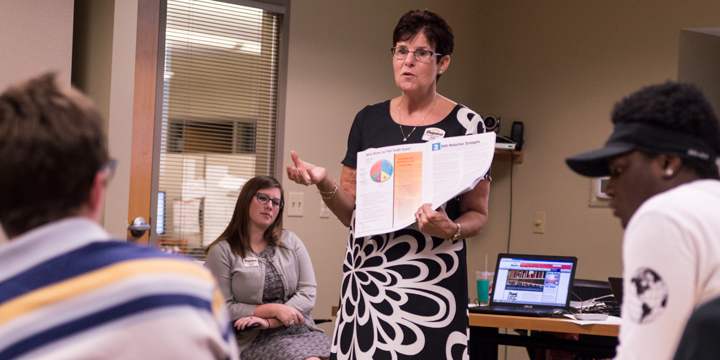You’ll want to avoid being paid this way

As I visit workplaces in Dupaco communities, I’ve noticed a troubling trend.
More employees, especially in the food industry, are receiving their wages via payroll cards.
This payment system can be a costly proposition for employees. And oftentimes, workers don’t realize they have another option—one that will give them the power to get money ahead.
What is a payroll card?
Payroll cards are prepaid debit cards that employers use to load employees’ wages onto. Employees can use the cards to make purchases at a point of sale and withdraw funds at ATMs.
The cards are gaining in popularity, particularly among low-wage employers.
In 2015, an estimated 7.4 million U.S. workers received their wages via payroll cards, according to a report by the Restaurant Opportunities Centers United. That number is expected to rise to 12.2 million by next year.
Restaurant managers tell me that payroll cards have been a more convenient way to pay employees in high-turnover positions. The cards also eliminate the need for employers to issue and mail paper checks, and they serve as a substitute for employees who don’t have a bank account and might otherwise use check-cashing outlets.
Related: Dupaco is a thrifty refuge from payday lenders
The cost of getting paid this way
Unfortunately for employees, payroll cards are the least favorable way to get paid. While these cards help employers cut costs, this payment method is doing nothing to help employees get ahead in life.
Costly hidden fees abound—including fees for ATM withdrawals, balance inquiries, replacement cards and more—cutting into employees’ wages before they have a chance to use their money.
Related: How to break the fee cycle
Fees vary from one card processor to the next. But one study found that three out of four cardholder employees incurred fees, according to a 2014 report by the New York State attorney general’s office. In some programs, workers were hit with fees averaging as high as $20 per month.
Another challenge: Employees never truly know how much money they have, because their wages are hidden in the plastic, making it that much more difficult to budget, track spending and save.
The money is easy in and easy out.
There’s a better option
So many times, people are victims of circumstance because they don’t know. Many employees I talk to wrongly assume payroll cards are their only option.
Employers can’t require their employees to receive wages on a payroll card, according to the Consumer Financial Protection Bureau.
I meet many people who don’t think they’re eligible to become a credit union member. I let them know there is an opportunity to be banked—which opens the door to systematically paying yourself first, budgeting, avoiding unnecessary fees and, ultimately, getting money ahead.
There’s power in direct deposit and systematic savings. Once wages hit a Dupaco member’s account, the money can be automatically allocated to You Name It Savings accounts, IRAs, Dupaco loans and more. That’s where the real power comes, because members can make financial decisions to meet their individual goals.
And they can keep tabs on their money anytime, anywhere through Dupaco’s Shine Online and Mobile Banking and eNotifier Alerts.
Related: Get at your money from wherever you are
So many people don’t realize these opportunities are available to them too. And if no one has ever shown them it’s possible, how would they know?
By Deb Schroeder
Vice President, Community Outreach and Education


